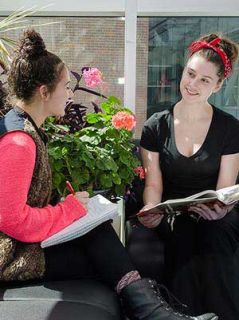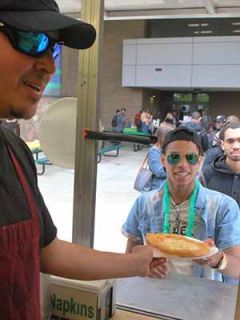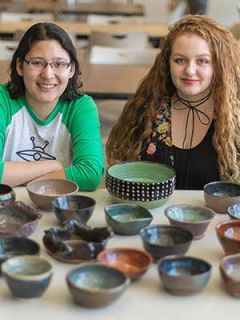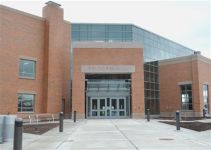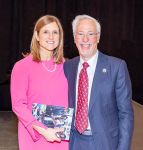News and Releases
As NVCC Weighs New Curriculum, Medical Professionals Provide Input
Share
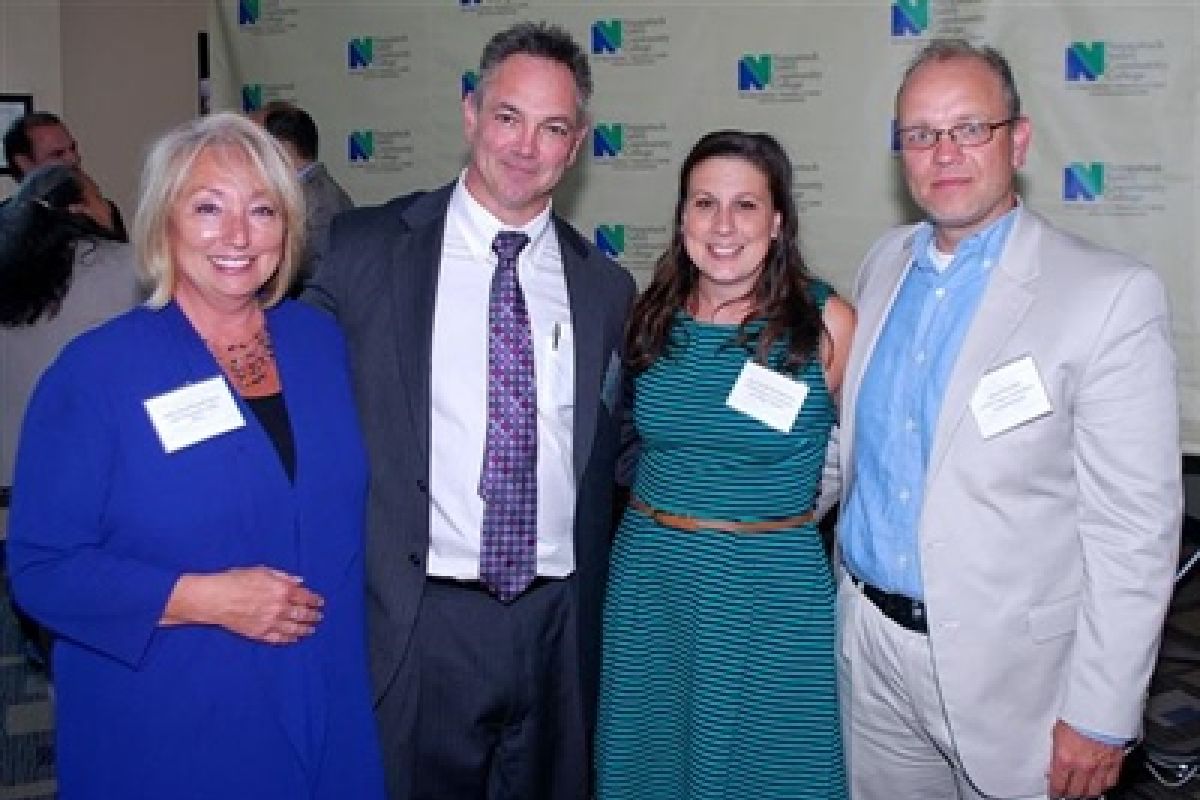
Naugatuck Valley Community College hosted an Allied Health Summit on Tuesday, August 4 to solicit input from local hospitals, as it develops a proposed curriculum for a new Associate Degree in Surgical Technology. The distinguished panel of speakers included hospital executives, surgeons, surgical technologists and higher education leaders from the Waterbury and Danbury areas.
“NVCC has accepted the challenge of preparing skilled workers for our 22-town service area,” said NVCC President Daisy Cocco De Filippis, Ph.D. “Your insight, input and guidance will assist us in ensuring that the program we create will meet the needs of industry for years to come,” she told the medical professionals.
Surgical technologists, also called operating room technicians, assist in surgical procedures. Their duties include arranging equipment, preparing operating rooms and assisting surgeons during procedures.
“It’s easy to talk about the operating room and focus on the surgeon; everyone does that. And I’m going to tell you right now, we should not. It’s all about the team,” said Dr. Philip R. Corvo, Chairman of Surgery and Director of Surgical Critical Care at Saint Mary’s Hospital in Waterbury. “When everything goes well, it’s because the team worked well… There’s so many critical things happening at every moment in time in the operating room that we have to work together that well.” Corvo noted that the College is on the right track to building a top-notch surgical technology program.
“The secret to being a good technologist is to be capable, caring, communicative and compulsive,” said Dr. Scott H. Kurtzman, Chairman of Surgery at Waterbury Hospital. “And the good ones stick out.” Kurtzman said building blocks to a good surgical technology program include solid foundations in anatomy, microbiology and hours upon hours of real-world experience.
Presenters at the summit agreed that it is vital that surgical technologists receive an education which will empower them to anticipate the needs of surgeons and know the terminology of the operating room as if it were a native language.
“It’s important to have as deep an understanding of the procedure as possible. That’s why you have to train people in the terminology. [It’s] extremely important, particularly if you’re doing robotic surgery,” said Dr. Cary S. Passik, Chief of Cardiothoracic Surgery at Danbury Hospital / Western Connecticut Health Network. “The key for every person is to try to be the best they can be… Surgical technology may be an entrée to something else—to running your hospital or running your operating room.”
Jason Yoakum, a Certified Surgical Technologist at Danbury Hospital, underscored the importance of working as a team in the operating room. “If you took a body, and the surgeon was the head, the surgical tech is the rest of the body,” he said.
Yoakum spent six years in the U.S. Army as a medical specialist before entering surgical technology school. He’s been a Certified Surgical Technologist for 17 years. “It’s a tough job and it takes a really special person to do that.” Yoakum is currently pursuing a nursing degree at NVCC and a bachelor’s degree in Health Care Administration.
As health care evolves, the need for well-trained surgical technologists is only projected to increase, according to Kim Viadero, administrator of surgical services at Griffin Hospital in Derby. “The job market for surgical techs is projected to grow 30 percent in the next 15 years due to advancements in technology that have made surgery safer and also because of our aging population,” she said.
If approved by the Connecticut Board of Regents for Higher Education, NVCC’s Associate of Science Degree in Surgical Technology program would be available to students starting in the fall of 2017. It would provide preparation for students to obtain entry-level positions in the field of surgical technology.
The Allied Health Summit was the third in a series of seven industry sector summits organized by NVCC to establish a forum for the development of relevant curricula to serve the needs of local employers and prepare students to become successful professionals with rewarding careers. The seven sectors are Allied Health, Manufacturing, Information Technology, Bioscience, Energy, Financial Services and Hospitality.
Other Naugatuck Valley Community College News
HAVE A QUESTION? EMAIL US.
Reporters and media inquiries, please contact us at


